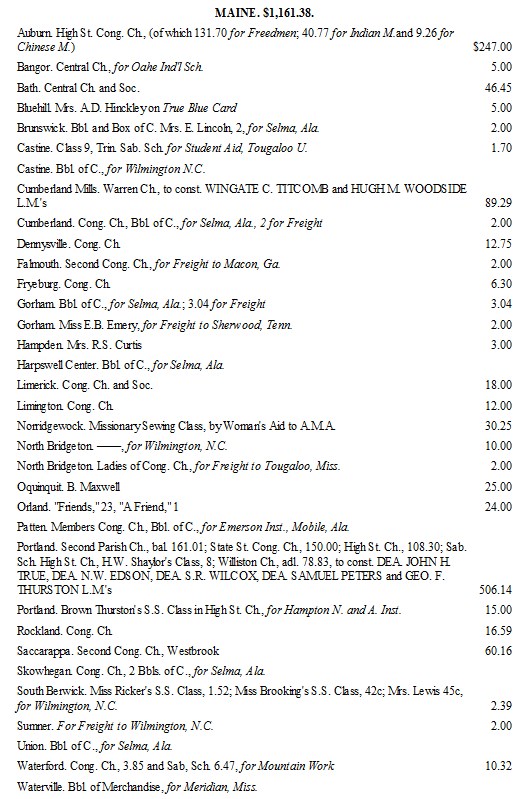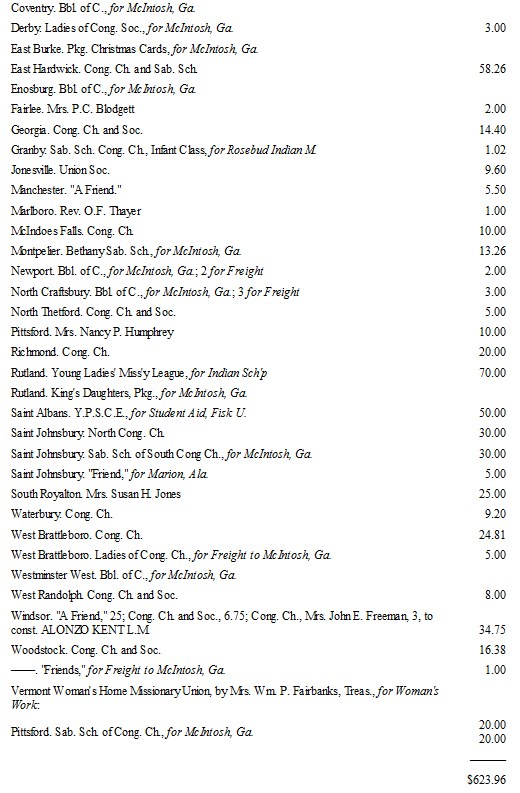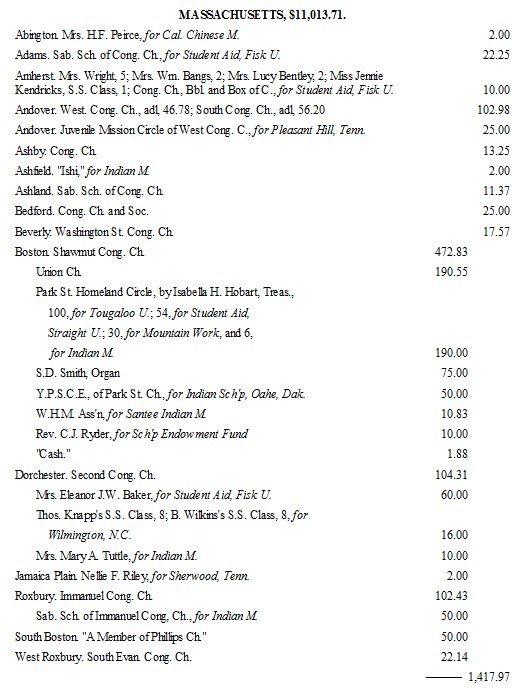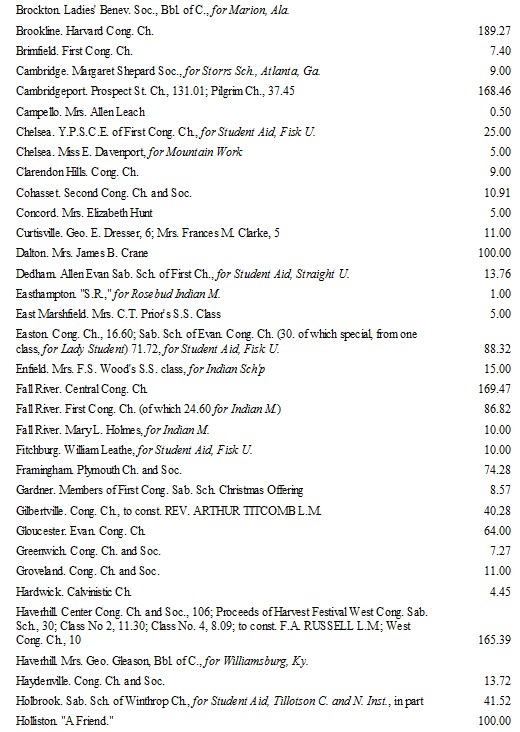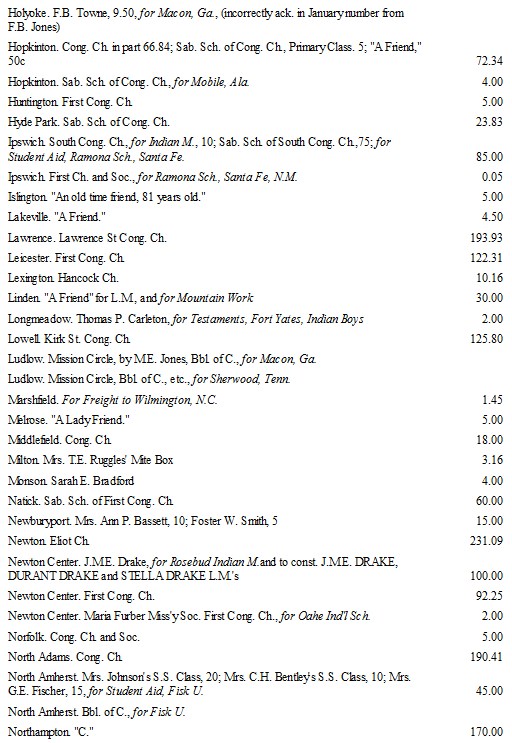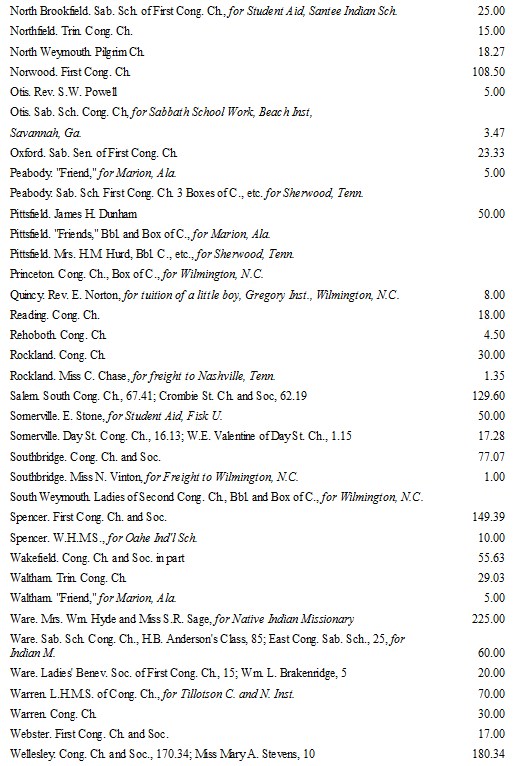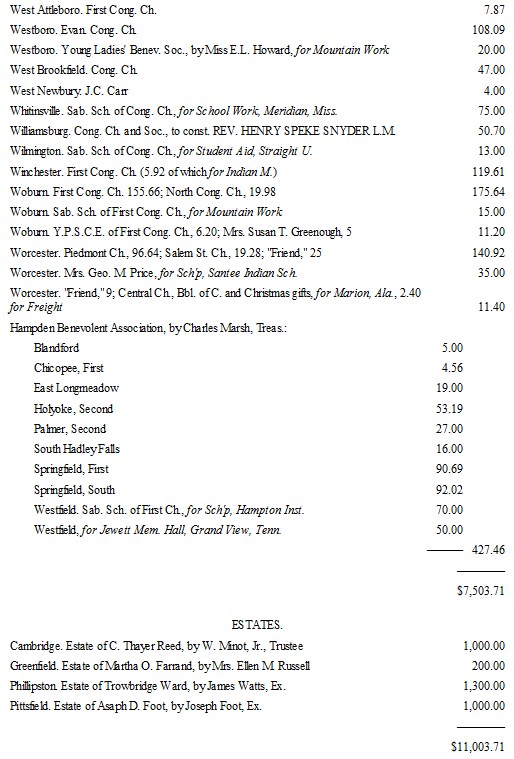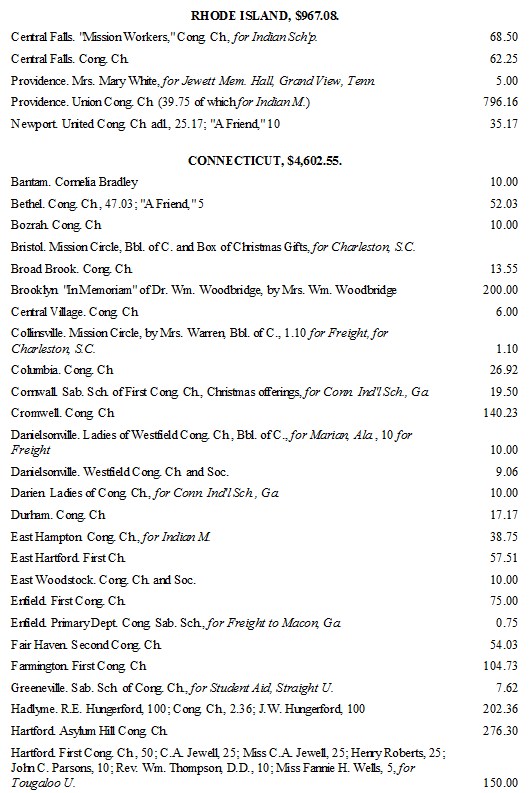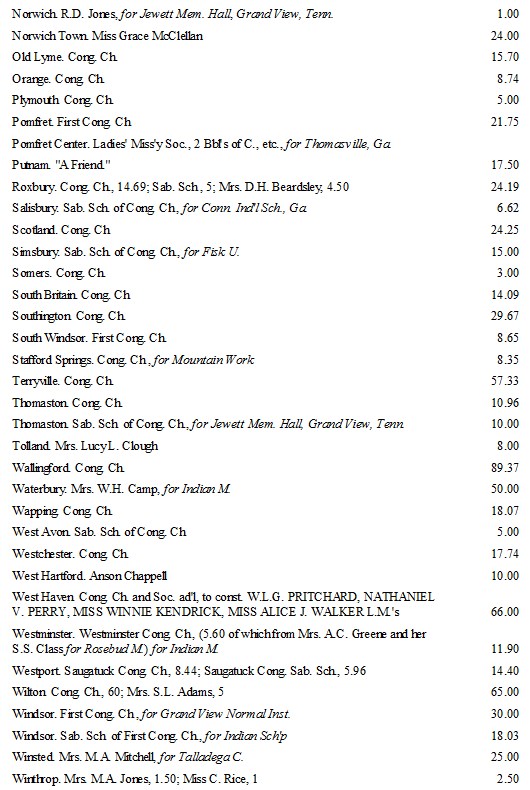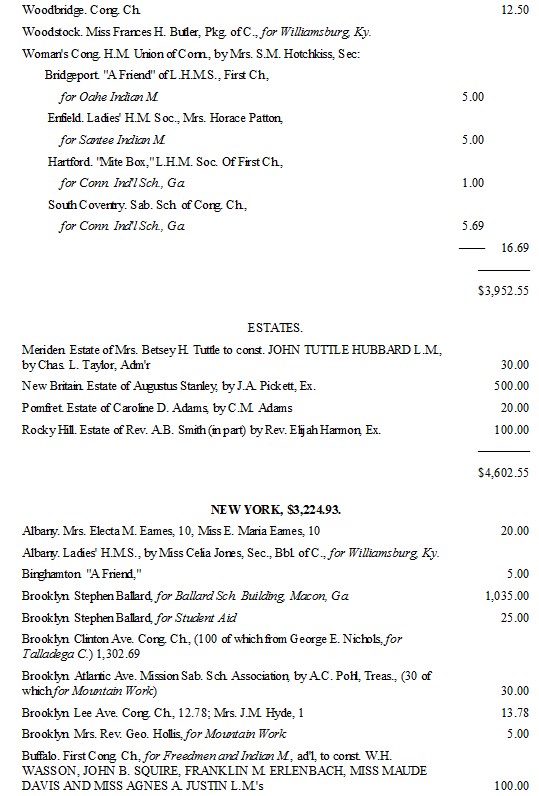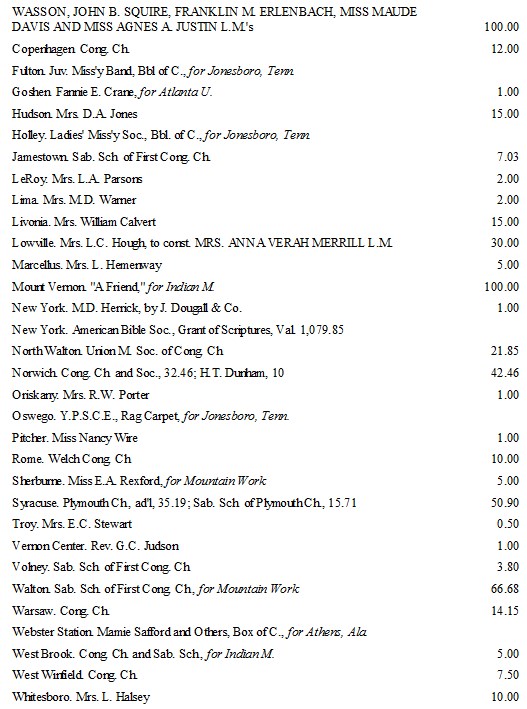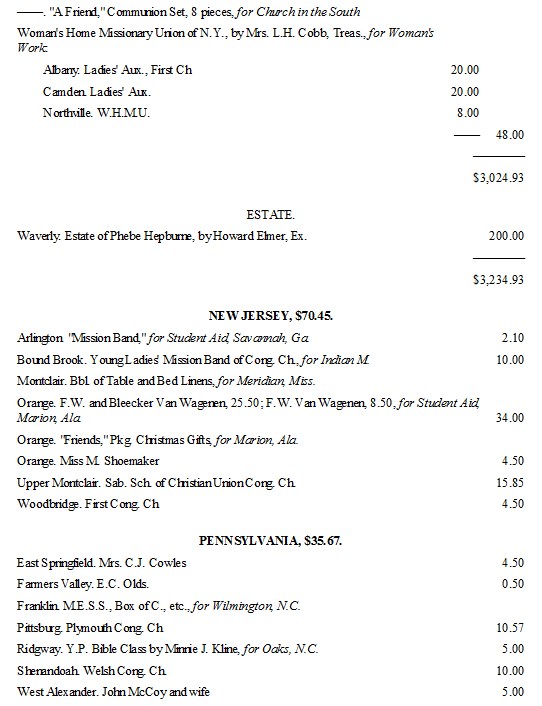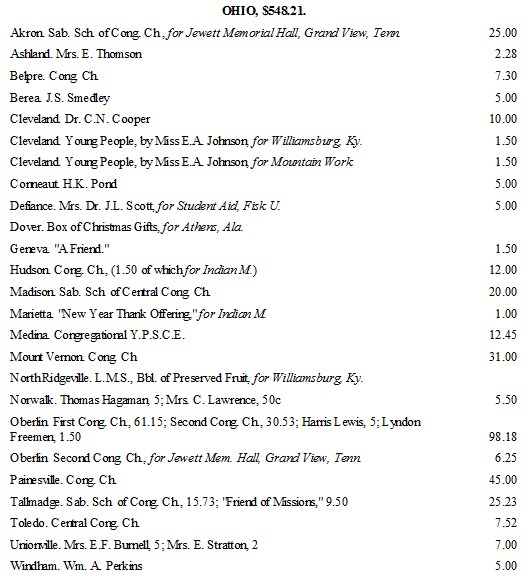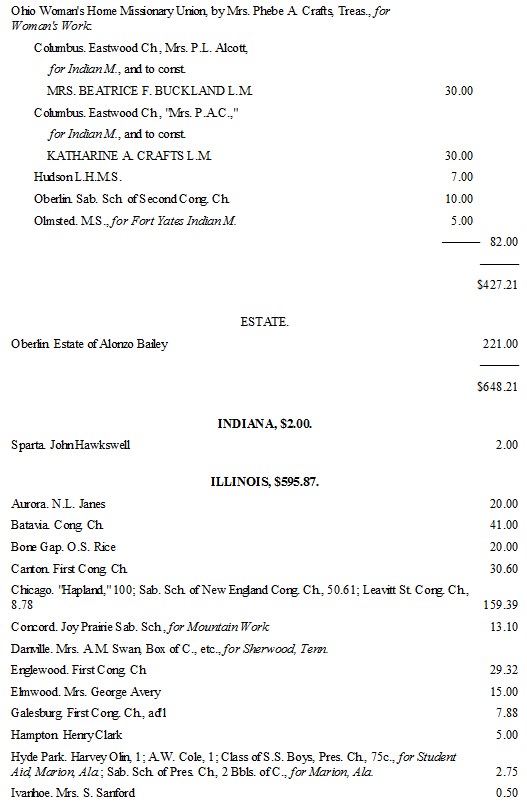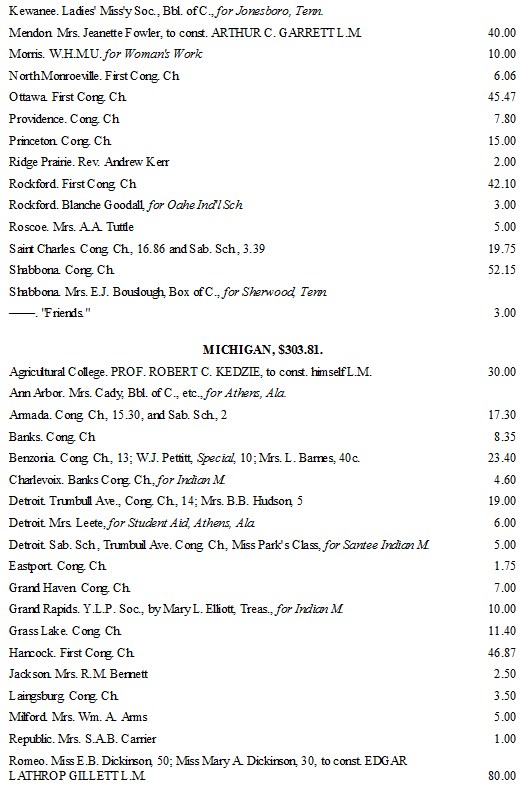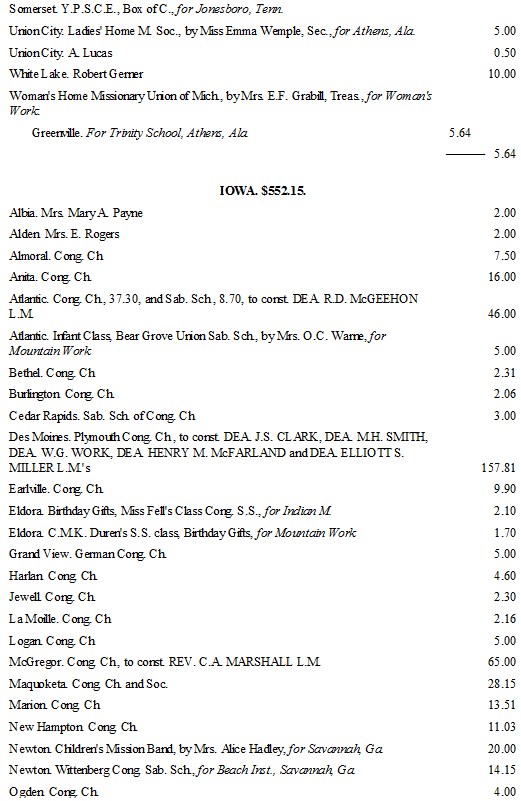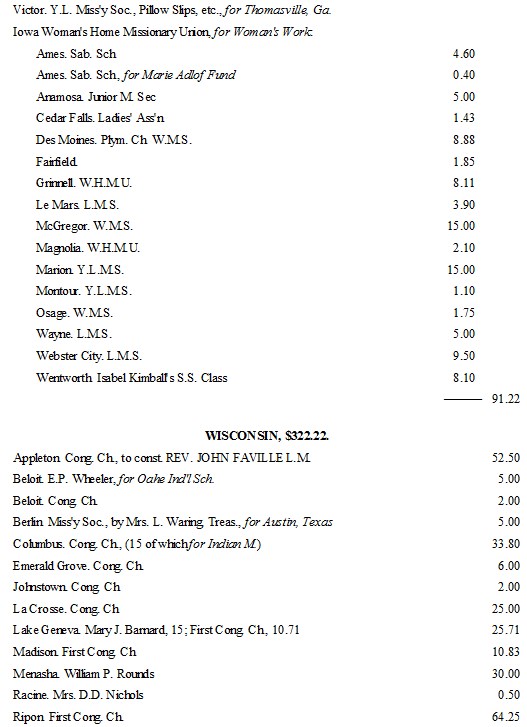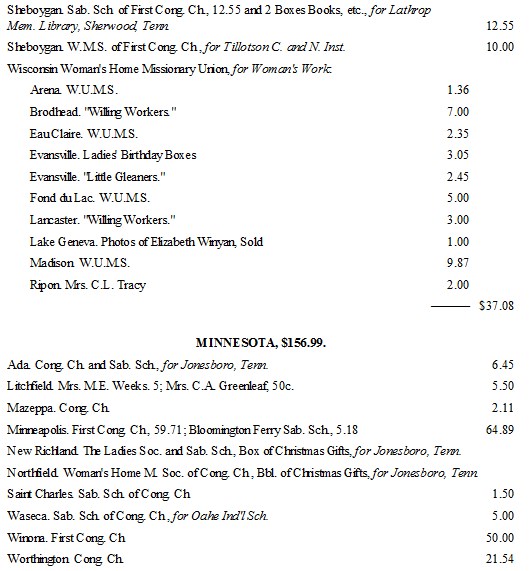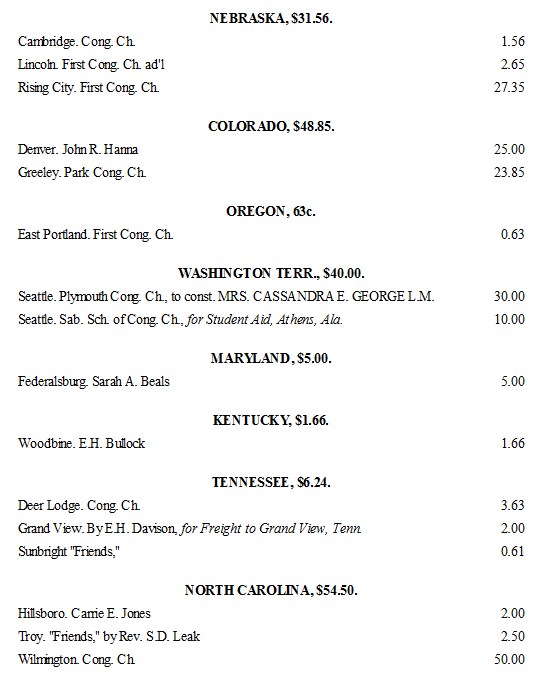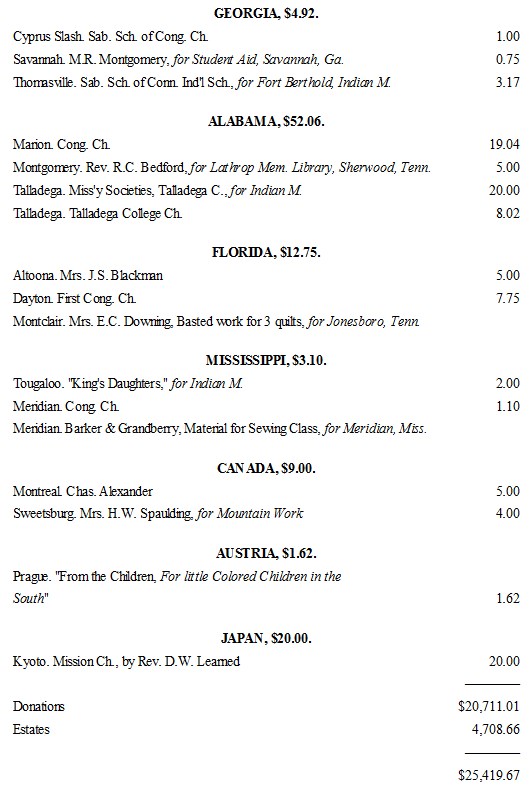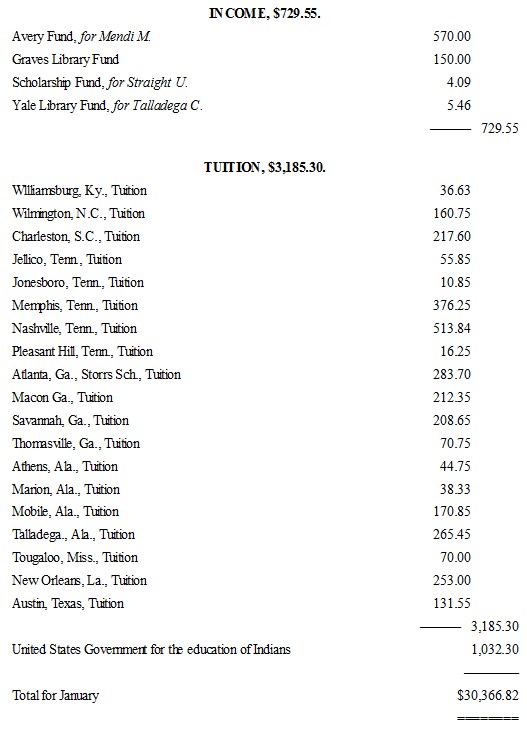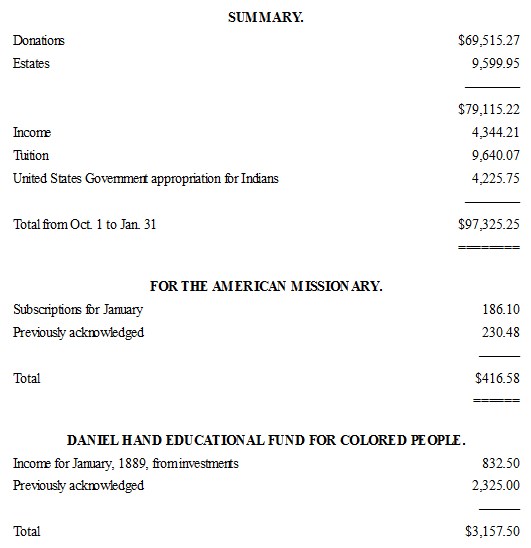
The American Missionary. Volume 43, No. 03, March, 1889
CHRISTMAS AT FORT YATES, DAKOTA
Our readers will be glad to welcome Miss Josephine E. Barnaby to her new field of work, and to a place in the pages of the Missionary. She is of the Omaha tribe, was a student at Hampton, then spent some time in a training school for nurses in New Haven, Connecticut, and is now the assistant of Miss Collins at the Grand River Station.
Miss Collins writes of her: "Josephine is very much interested in her work. She said to-day, 'I wish every one interested in Indians could come here and stay long enough to see how the foundation ought to be laid, and how much better off our native teachers, Elias and Wakanna, are with the Bible knowledge they have without the English, than the Indians are who speak English and are without Christ.' She knows, for her people are largely godless but English-speaking."
My Dear Friends:
We have been so busy getting ready for Christmas that we have had no time to write to our friends. Miss Collins told the Indians on Sunday last that we were going to have a tree and wanted all the Indians to come, the real old ones as well as the young men and women. She told them of how our Saviour was born on Christmas day, how the people came and gave him gifts, and we, in remembering his birthday, would give them little gifts. The next day, a very old woman came to the school-house and told Mary (that is the native teacher's wife) that she heard we were going to have a "Ghost feast" and give away everything we had, so she thought she would come and ask for one of the school-room lamps for fear she might not get it if she waited, as there would be so many people to get the things, and she needed a lamp very much.
Doesn't that sound like an Indian? I was very sorry the poor woman did not get the lamp.
Yesterday morning, while Miss Collins pinned the names on to the presents, I went up to the school-house, and by the help of two native teachers planted the tree in a cracker-box and put the little colored candles on. In the afternoon, we took the presents up and hung them on the tree; we put up a curtain to hide the tree, and then in the evening put out several Japanese lanterns on the corners of the house and over the door, and rang the bell; while the bell was ringing, you could see the Indians coming from all parts of the village. It was a pretty sight. The ground was covered with snow, it was just between the light and dark, and a few bright stars were shining through the clouds.
The room is not very large, so Miss Collins proposed that they should stand. It was well they did, for they were packed tightly together, the men and boys on one side, the women and girls on the other.
After all came, we sang "Joy to the World," in Dakota, with several other hymns; they all sang very loud. Then Wakanna told them about Christ's birthday, then we lighted the little candles and took the curtain away, and you can imagine there were some wide-open eyes and big, smiling faces. There were over two hundred, and each one received something; as one man came to day and said to Miss Collins, "Why, Winona, you did not forget the little babies; their names were read out the same as the old men." The tree was very pretty, and it would be useless for me to tell what each one received, but the boys were delighted with their tops as much as the girls were with their pretty dolls; the old men received feather fans and were delighted. After they had their gifts, we passed refreshments; we then had the fireworks; the red light was wonderful to them—the first they had ever seen. They went home seeming very happy.
We want to thank our friends who were so kind as to send us those pretty things for the Christmas tree.
I myself have never before spent such a happy Christmas, because previously all my kind friends have always tried to make me happy, and this time I worked hard to make some one else happy, and I find that is the best kind of happiness.
My benches were almost crowded to-day in school, as I had so many children; married women come with the children; they are all very anxious and earnest to learn to read and write. I ask you to pray, my dear friends, that there may be some good seed sown each day, that may spring up and bring forth fruit for His service.
Truly your Indian Friend,
JOSEPHINE E. BARNABY.MISS COLLINS
Our friends will recollect Miss Collins's visit to the East, and many will cherish a very pleasant remembrance of her addresses at Lake Mohonk and elsewhere. We give below extracts from a letter received from her, presenting a vivid picture of her experience in crossing the Missouri River with the ice breaking up, the loss of her clothing, and her subsequent labors among her people at home.
I was so late in returning from the meetings at Oahe, though I hurried as fast as possible, that the river was frozen, detaining us nearly three weeks. The ice broke, letting the wagon with all my winter supplies go down. My trunks with all my clothing also went down. It wholly ruined all the clothing which could not be washed. My best dress was a frozen block of ice when I took it out—can never be worn again, and, in fact, all my clothes were ice. I was so thankful that no lives were lost that it hardly seems worth speaking of. I find myself poorer, if not wiser. I am worked down at present. Have kept "open house" now for two weeks, and my head refuses to be worked any further. Miss Emerson must wait for my letter. After Christmas I can write. I have so many patients, and so much work to take care of spoiled clothes and provisions, and to look out for winter supplies again, that I am not in a condition to write.
FOR THE CHILDREN
A few weeks ago, I stood by my window watching the children gathering for school. My attention was attracted to three girls coming up the street, one carrying a bundle done up in a handkerchief in one hand and books in the other, while the other two carried a trunk between them. As they turned toward the house, I ran down to meet them; they came with smiles, saying they had come to school. As I bade them welcome, my eyes filled with tears, and a prayer went up to God that he would bless those girls and make them a blessing. Susan, Angeline and Emma have proved to be intelligent, pleasant girls and very appreciative.
I have had one hundred and seven girls in sewing, this quarter; they seem as interested in their work as ever. Some of the older girls are doing well in cutting and basting. We hope to have a class in dressmaking soon. The little ones are very happy to have sewing days come. I am often met with the question, "Is us going to sew to-day?" I meet these forty little ones in a large sunny room, (that is to be our parlor some day, I hope) for an hour and a half each week. Their eyes brighten at the sight of the basins of water and the work basket. They apply themselves as demurely as their elder sisters; they love to sing little sewing songs and hear stories while they ply the needle.
From a teacher in Beach Institute, Savannah:
One of my new pupils has a name much longer than himself. It is Ulysses Virginia Lee, and in addition, the surname Smith. Another new boy is Josie Mike, and I think it might well be changed to "Mite," because he is such a small specimen. He could not tell his age, and we thought him too much of a baby to come, but took him for a week on trial, and as he is rapidly learning the ways of the school, we shall let him stay. Last Friday, while trying to impress upon him that only good behavior would insure him a desk in my room, I wrote some of his sayings. "Why do you want to come here to school?" "To larn something." "What if you are naughty and we send you away?" "Go to other school." "Why did you leave that other school?" "They won't teach me nothin." In answer to the question what kind of a boy he intended to be, instead of saying "good" as I expected, he replied, "I'll be a Beach boy." So he was ready with an answer to every question, and I am only sorry that I cannot reproduce for you his little face and the funny inflections of his voice, as he looked me right in the eye, his own little eyes just dancing with fun.
One of the little Indian girls whose name is Polly has just come in to ask, "Miss D., what is a wog? One white boy called me a polliwog, and I thought a wog must be something bad."
RECEIPTS FOR JANUARY, 1889
